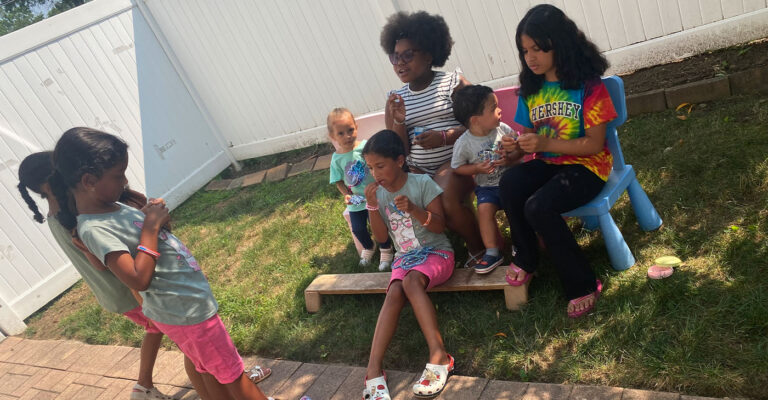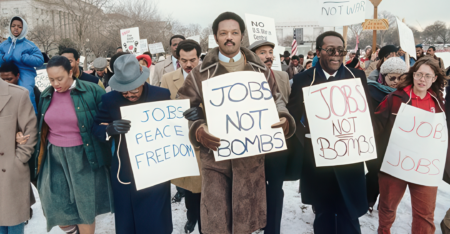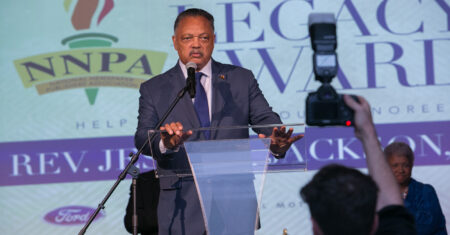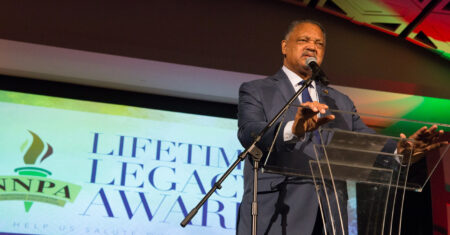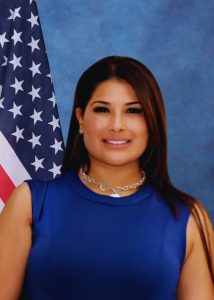
By Janna Rodriguez
BlackPressUSA interviewed Janna Rodriguez, an advocate, educator, and champion for early childhood education. She’s the founder and owner of Innovative Daycare Corp in Freeport, NY, where she has created a nurturing, bilingual, and inclusive environment serving children of all abilities.
Janna leads advocacy efforts through organizations including the CDA Council, NAEYC, Small Business Majority, Childcare Changemakers, and the CSEA/VOICE Union, where she represents thousands of family childcare providers across New York State.
Her efforts ensure that children—especially those from underserved communities—have access to a strong educational foundation and a brighter future.
Q: What should parents consider when enrolling their child in an early childhood education program?
A: Parents should first consider the program’s philosophy and whether it aligns with their values and goals for their child. It’s not just about finding care—it’s about finding an environment that nurtures the whole child: physically, emotionally, socially, and intellectually. Look for programs that have developmentally appropriate practices, a strong focus on safety and emotional well-being, and educators who genuinely understand child development. Accreditation and staff qualifications matter, but so does observing how teachers engage with children daily.
Q: From your perspective, how should a parent decide which early childhood program is best for their child?
A: Choosing the right program is a personal decision. Parents should visit multiple programs, ask questions about curriculum, ratios, and communication, and watch how their child responds during a visit. The best program feels like an extension of the home—warm, welcoming, and attuned to each child’s unique needs. Trust your instincts. An early childhood program should empower your child to be curious and confident while also supporting you as a parent.
Q: We live in a multicultural country. How does the early childhood education community ensure it’s reflective of that reality?
A: Quality early childhood programs must honor diversity. At our program, we intentionally create a bilingual environment and celebrate different cultures through music, art, and storytelling. This isn’t an occasional themed week—it’s woven into our daily interactions. Representation matters; children should see themselves and their peers reflected in books, toys, and the people who care for them. Beyond the classroom, early childhood professionals need continued training in cultural competency to foster true inclusivity.
Q: You’re very effective at making the case that we need to do a better job of valuing the early childhood education workforce. How do you see things right now? What’s going well and where do hurdles still exist?
A: We’ve made progress in elevating conversations about early education, especially since the pandemic exposed its essential role in our economy. However, many educators still face low wages, limited benefits, and societal undervaluation. What’s going well is that advocacy is growing; educators are organizing, unions are strengthening, and policymakers are listening. The hurdle remains translating awareness into sustainable funding and policy changes that ensure educators receive professional pay and respect for the critical work they do.
Q: You recognize that people of color are more likely to face disparities in affordable childcare. How do you help in this regard? What more do you think others should be doing to help?
A: As a Latina educator and advocate, I’ve experienced these disparities firsthand. Our program prioritizes access for low- and middle-income families and participates in programs like the child care assistance program in New York to make care affordable. Beyond our own classrooms, I advocate for systemic change through my role in childcare organizations and lobbying efforts, pushing for increased subsidies and equitable policies. Others can help by challenging biases, supporting minority-owned early childhood programs, and urging leaders to address racial inequities in funding and licensing.
Q: Successful education outcomes require parents to build on and expand lessons taught in early childhood education. How can parents advance what you and your team try to teach at your program?
A: Partnership with parents is essential. We encourage parents to read daily with their children, ask open-ended questions, and allow for unstructured play at home. Consistency matters—when families mirror the routines and positive behavior guidance we practice in our program, children thrive. We also provide digital tools and weekly lesson plans so parents know what we’re focusing on and can reinforce those skills through everyday activities like cooking, nature walks, and family conversations.
Q: Please share an example of a student you know who’s benefited greatly from their time in your early childhood program. How did you know they were excelling? What made it such a positive experience?
A: One child joined us with significant developmental delays and struggled socially. Through individualized attention, collaboration with specialists, and a nurturing environment that built confidence through play, this child flourished. Within a year, they were communicating more clearly, forming friendships, and demonstrating problem-solving skills we hadn’t seen before. The success came from teamwork—educators, therapists, and parents aligning around the child’s strengths and needs. Watching that transformation reaffirmed why high-quality, inclusive early childhood education is life-changing.




